The Montessori method is widely praised for its hands-on, child-led approach to learning. For early childhood development, Montessori activities focus on practical life skills, sensory exploration, and cognitive development. These activities help children build independence, refine motor skills, and foster creativity. Here are 10 Montessori activities you can easily implement at home or in a classroom to support early childhood development:
1. Transferring with Tongs
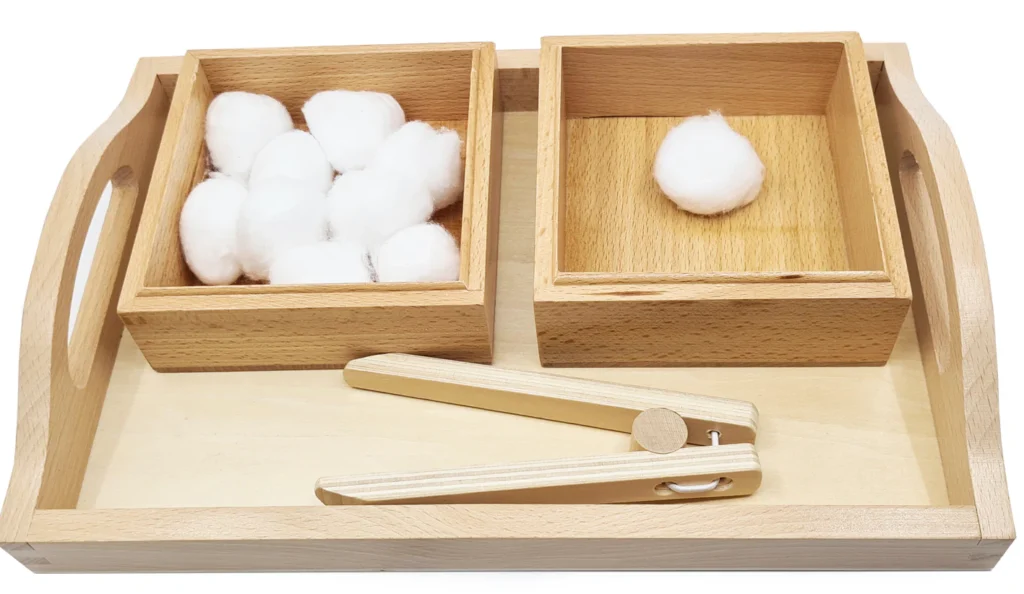
Using child-sized tongs to transfer objects from one bowl to another helps develop fine motor skills, hand-eye coordination, and concentration. You can use pom-poms, small stones, or beans for this activity.
- How to Do It: Place two bowls side by side, one filled with small objects. Have the child use tongs to transfer the objects from one bowl to the other.
2. Pouring Water

Pouring water from one container to another is a classic Montessori activity that teaches children control and coordination. It also introduces concepts of volume and helps refine fine motor skills.
- How to Do It: Provide two small pitchers or cups and show the child how to pour water from one into the other. Encourage them to repeat the process.
3. Sorting by Color and Size

Sorting objects by color and size promotes cognitive development by teaching children how to categorize and recognize patterns. This is also great for improving their focus and organizational skills.
- How to Do It: Give the child a tray with various objects (buttons, blocks, or beads) and ask them to sort them into categories based on color, shape, or size.
4. Threading Beads
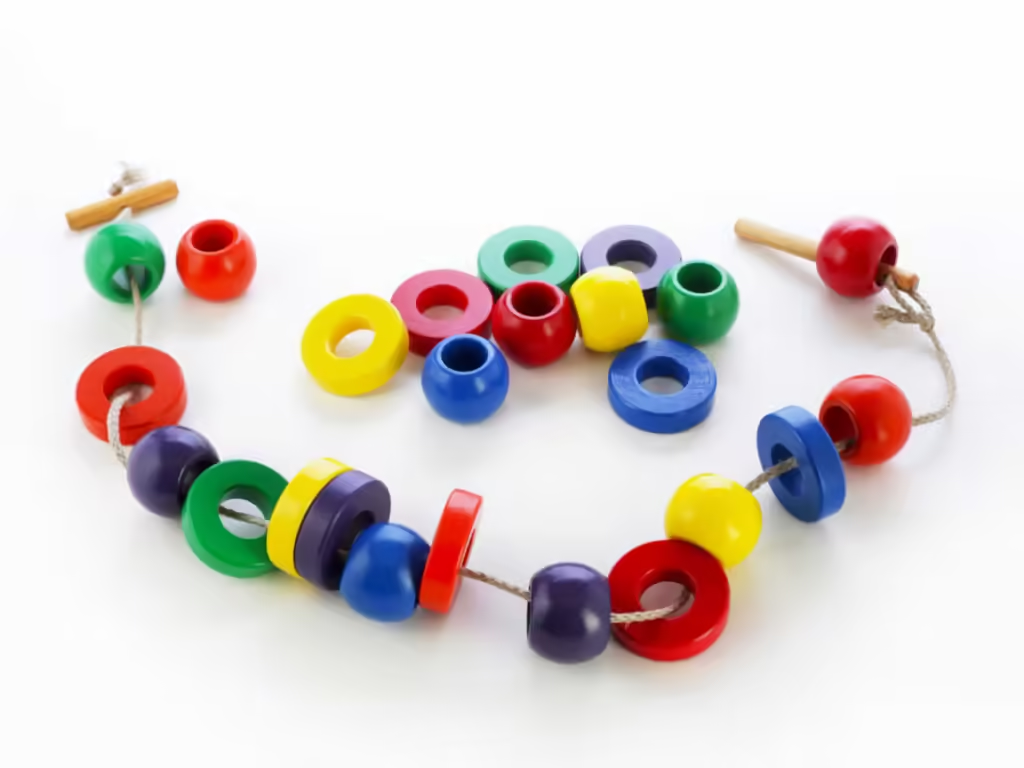
Threading large beads onto a string is an excellent way to develop fine motor skills and hand-eye coordination. It also helps children learn to concentrate on a task and builds patience.
- How to Do It: Provide a string and some large beads, and show the child how to thread the beads onto the string. Let them continue until they feel satisfied with their creation.
5. Washing Vegetables

Incorporating practical life activities like washing vegetables teaches responsibility while refining motor skills. Children enjoy participating in everyday tasks that they see adults doing.
- How to Do It: Set up a child-safe station with a small basin of water, a brush, and some vegetables like carrots or potatoes. Show the child how to wash the vegetables and let them practice.
6. Matching Cards
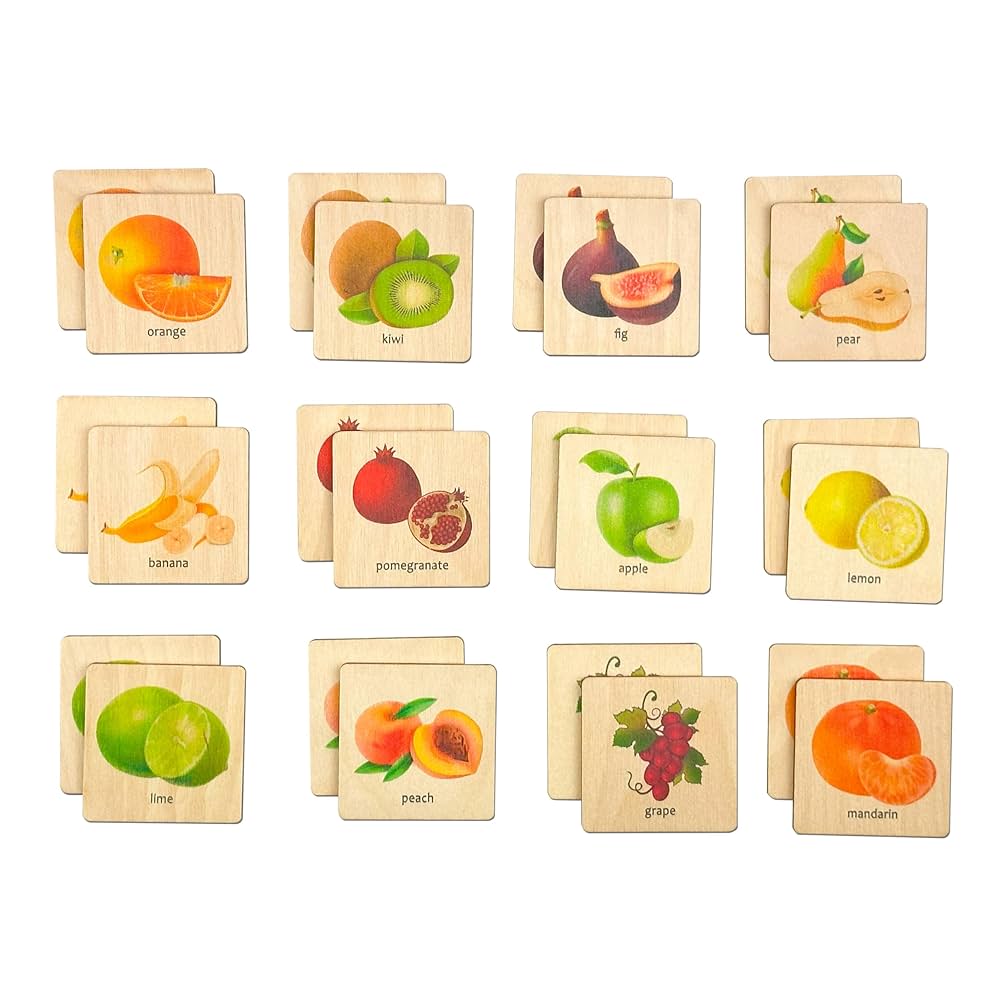
Matching cards is a simple yet effective activity that helps children improve their memory, focus, and cognitive skills. It also introduces them to new vocabulary when using cards with images or words.
- How to Do It: Create or purchase a set of matching picture cards. Lay them out face down and have the child flip two cards at a time, trying to find the matching pair.
7. Sweeping
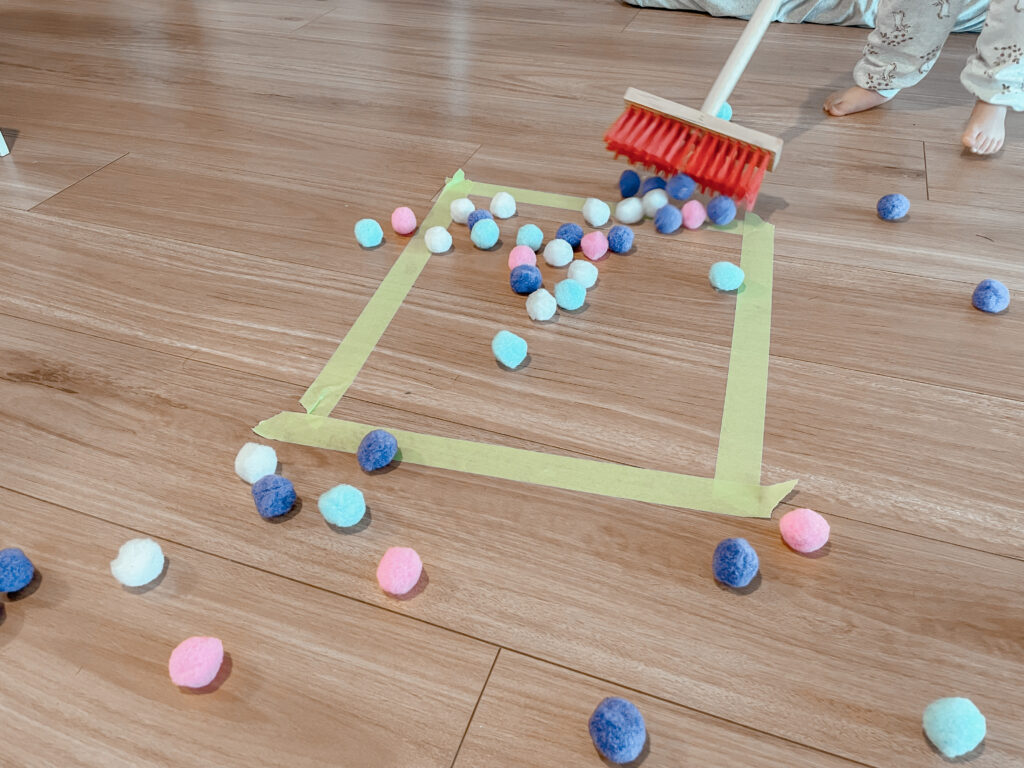
Sweeping is a Montessori practical life activity that teaches children how to clean up after themselves while developing gross motor skills. It also fosters independence and responsibility.
- How to Do It: Provide a child-sized broom and dustpan and let the child practice sweeping up small messes. You can even sprinkle some beans or rice on the floor for practice.
8. Sensory Bins
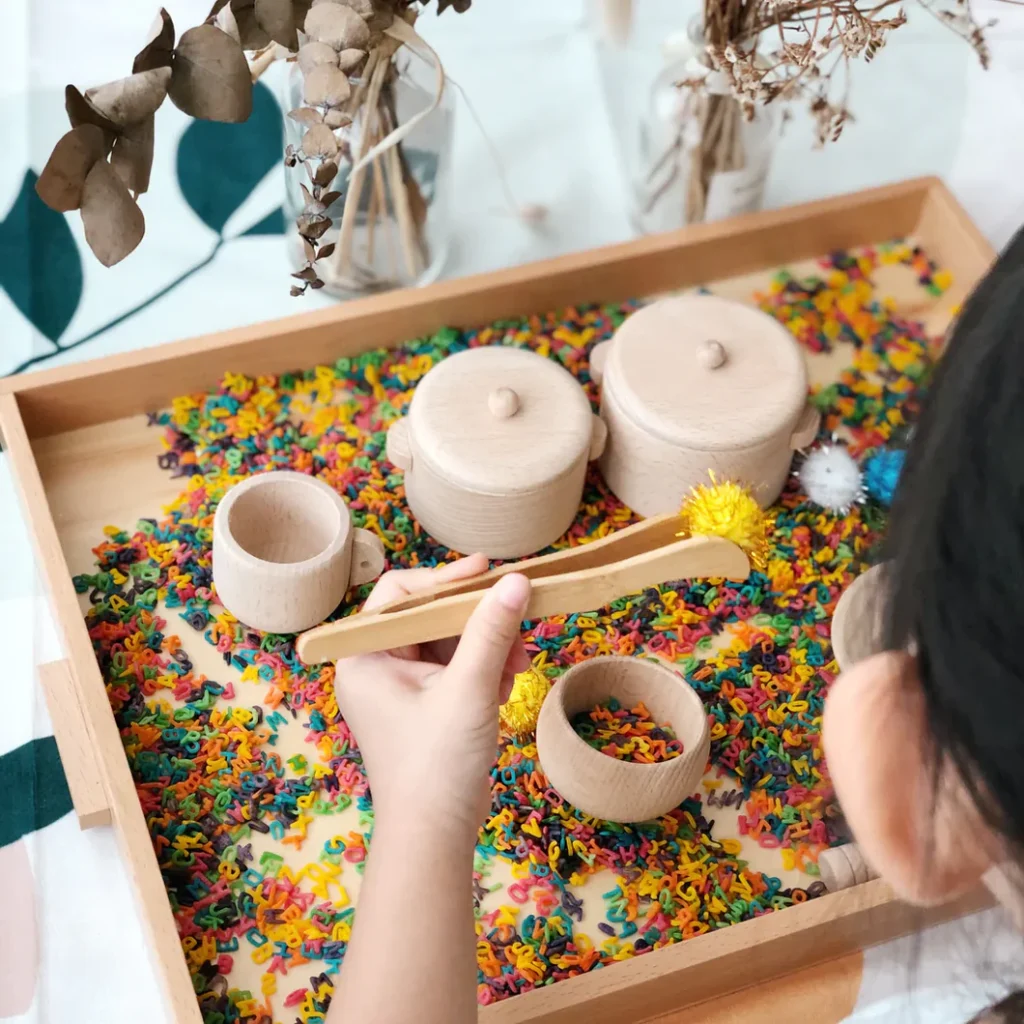
Sensory bins filled with rice, beans, sand, or other materials allow children to explore textures, weights, and sounds, stimulating their senses and encouraging creative play.
- How to Do It: Fill a shallow bin with materials like dry rice, lentils, or sand. Add small objects for the child to find and feel, such as spoons, scoops, or figurines. Let the child explore the textures and play freely.
9. Montessori Puzzle Maps

Puzzle maps are a great tool for teaching young children about geography while developing their fine motor skills and problem-solving abilities.
- How to Do It: Use a Montessori puzzle map, typically a map of continents or countries, and encourage the child to place the pieces correctly while discussing each region.
10. Baking Simple Recipes

Baking is a wonderful way to integrate math, science, and practical life skills. Children can learn how to measure ingredients, follow steps, and take pride in making something from scratch.
- How to Do It: Choose a simple recipe, like cookies or muffins. Allow the child to measure ingredients, stir the mixture, and help with pouring. Supervise closely when using the oven.
Conclusion
Montessori activities are designed to nurture a child’s natural curiosity and support their developmental needs through engaging, hands-on tasks. Incorporating these activities into your daily routine at home or in the classroom will foster independence, build essential skills, and encourage a love of learning in early childhood.

